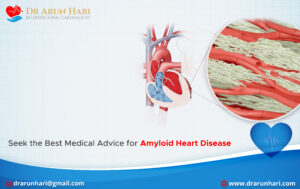Did you know that over 33 million people worldwide suffer from atrial fibrillation (AFib), a condition that significantly increases the risk of stroke and heart failure? While AFib is widely recognized, its close counterpart, atrial flutter, is often misunderstood. Atrial flutter vs AFibBoth, both of the conditions involve irregular heart rhythms, but they differ in their causes, symptoms, and treatment approaches.
What is Atrial Flutter and AFib?
Both AFib vs a flutter are types of atrial tachyarrhythmias, meaning they originate from the upper chambers of the heart and cause rapid, irregular beats. However, they differ significantly in how they affect heart function.Atrial Flutter (Aflutter)
Atrial flutter, often called flutter heart, occurs when the atria (upper chambers of the heart) beat too fast but in a regular rhythm. This condition is caused by a reentrant circuit, leading to rapid atrial contractions.Atrial Fibrillation (AFib)
AFib, on the other hand, is an irregular and chaotic heartbeat caused by multiple electrical impulses firing unpredictably within the atria. This leads to an erratic and often fast heartbeat.Recognizing the Symptoms: Atrial Flutter vs AFib
The atrial fibrillation flutter symptoms can often overlap, making it challenging to distinguish between the two without medical testing.Common Symptoms of Atrial Flutter
- Rapid but regular heartbeat
- Shortness of breath
- Chest discomfort
- Fatigue
- Dizziness or fainting
Common Symptoms of AFib
- Irregular, fast heartbeat
- Heart palpitations
- Fatigue
- Chest pain
- Increased risk of stroke
ECG Differences: How to Identify Atrial Flutter vs AFib
An electrocardiogram (ECG) is the most effective tool for diagnosing AFib and Aflutter. Here’s how they appear differently on an ECG:Atrial Flutter ECG
Atrial flutter presents with “sawtooth” waves, where the atria contract in a very organized yet rapid manner.AFib ECG
In atrial fibrillation flutter difference, AFib is characterized by chaotic and irregular atrial activity, with no distinct P waves on an ECG.Expert Treatment from Dr Arun Hari
If you experience symptoms of atrial flutter or AFib, seeking expert care is crucial. Dr Arun Hari, a highly experienced interventional cardiologist, specializes in diagnosing and treating arrhythmias using advanced medical interventions.Book a consultation with Dr Arun Hari today and take control of your heart health!
FAQ - Atrial Flutter vs AFib: Symptoms, ECG, and Treatments
1. What is the difference between atrial flutter vs AFib?
The main difference between atrial flutter vs AFib lies in the pattern of the irregular heartbeat. Atrial flutter produces a fast but regular heart rhythm, whereas AFib results in an irregular and chaotic heartbeat. Both conditions can increase the risk of stroke and heart complications.
2. What are the common atrial fibrillation flutter symptoms?
The atrial fibrillation flutter symptoms can overlap, making diagnosis challenging. Common symptoms include:
Palpitations (fast or irregular heartbeat)
Shortness of breath
Fatigue
Chest pain
Dizziness or lightheadedness
Fainting episodes in severe cases
Palpitations (fast or irregular heartbeat)
Shortness of breath
Fatigue
Chest pain
Dizziness or lightheadedness
Fainting episodes in severe cases
3. How can I tell the difference between AFib vs a flutter?
To differentiate between AFib vs a flutter, an electrocardiogram (ECG) is essential. Atrial flutter presents as a “sawtooth” pattern on an ECG, whereas AFib appears as an erratic and disorganized rhythm.
4. Are the atrial fibrillation and flutter symptoms dangerous?
Yes, both atrial fibrillation and flutter symptoms can lead to severe complications if untreated. These include stroke, heart failure, and blood clots. Seeking timely medical intervention is crucial to prevent complications.
5. What causes flutter heart?
Flutter heart, or atrial flutter, is caused by electrical circuit malfunctions in the atria. Common risk factors include high blood pressure, heart disease, lung diseases, excessive alcohol consumption, and prior heart surgery.
6. Can AFib and Aflutter be treated?
Yes, both AFib and Aflutter can be treated through medication, lifestyle modifications, and advanced procedures like catheter ablation. Dr. Arun Hari specializes in advanced interventional treatments to restore normal heart rhythm effectively.
7. What is the atrial fibrillation flutter difference in terms of stroke risk?
Both conditions increase stroke risk, but AFib poses a higher risk due to its irregular and chaotic rhythm. Proper management, including anticoagulation therapy, is necessary to minimize the risk.
8. What are the key symptoms of atrial flutter?
Common symptoms of atrial flutter include a rapid but regular heartbeat, dizziness, fatigue, and shortness of breath. If you experience these symptoms, consult Dr. Arun Hari for expert diagnosis and treatment.
Book a consultation with Dr. Arun Hari today and take control of your heart health!
Consult Dr. Arun Hari for expert guidance on atrial flutter and AFib treatments. Early diagnosis and appropriate intervention can help manage your condition effectively.





